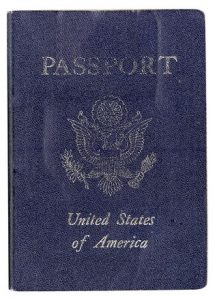Did you enter the U.S. without inspection? Did you enter the U.S. with inspection but overstayed your permitted time? A person who is in the U.S. without proper authorization will begin to collect unlawful presence time, and depending on the amount of days of unlawful presence collected, may be subject to a three or ten-year inadmissibility bar.
The bar period only starts to run once the applicant actual leaves the U.S. A bar would make it so that the applicant alien would have to leave the U.S. for the ban period before being allowed to seek any immigration benefit. Since most people subject to three or ten-year bars are ineligible to adjust status within the U.S., the applicant would have to leave the U.S. in order to consular process in their home country. Leaving the U.S. would trigger the ban clock and so the applicant would be forced to wait out the period outside the U.S., away from their family and responsibilities here.
A 601 waiver must be submitted in order to overcome a three or ten-year inadmissibility bar due to prior visa overstay, entry without inspection, misrepresentation, fraud, or certain crimes. The 601 waiver asks the government to waive, or forgive, the unlawful presence time collected, allowing the person to reenter without having to wait out the bar period.
An immigration benefit petitioner who is ineligible for a visa under INA 212(a)(9)(B) “Unlawful Presence” may not apply for a waiver unless he or she is the spouse or son or daughter of a United States citizen (USC) or lawful permanent resident (LPR). A waiver under INA 212(a)(9)(B)(v) will be granted in such a case only if the applicant can establish that denial of his or her admission would result in extreme hardship to his or her U.S. citizen or LPR spouse.
Many factors can be considered when determining “extreme hardship” to a qualifying relative. Factors can include: family ties in the Unites States; family ties outside the United States; the country conditions in the country to which the qualifying relative would be forced to relocate absent an approved waiver; financial impact to the family if forced to depart; and, significant conditions of health, particularly when tied to an unavailability of suitable medical care in the country to which the qualifying relative would relocate. See Matter of Cervantes, 22 I. & N. Dec. 560, 565-566 (BIA 1999). 
It is important to note that the hardship must be suffered by the USC/LPR spouse, and not the non-citizen spouse. Also, in meeting the extreme hardship threshold, the hardship must be more than that which may be expected when a family is separated. Successful applicants will have to demonstrate unusual hardships to the U.S. citizen/permanent resident relative, such as: major medical conditions; chronic illness; a disabled relative who needs constant care; lack of the USC/LPR family ties to the applicant’s country of origin; inability to speak the applicant’s native language; financial considerations; loss of opportunity in applicant’s country of origin, etc.
A grant of a provisional waiver states that the U.S. government is willing to forgive the original inadmissibility before the expiration of the three or ten-year bar period. Without such a waiver the applicant would not be able to return to the U.S. until the bar period had passed.
The provisional unlawful presence waiver allows for an immigrant visa to be issued to the immediate relatives of USCs or the spouse and children of LPRs, who are otherwise admissible to the United States except for the 3-year and 10-year unlawful presence bars. The waiver allows eligible relatives to apply for a provisional unlawful presence waiver while they are still in the United States and before they leave to attend their immigrant visa interview abroad.
This waiver grant allows families the reassurance of knowing that when their relative leaves the US, he or she will be able to return without having to remain outside during the ban period.
The process of obtaining a provisional waiver is complex and may be daunting. It is recommended that you obtain the services of an experienced attorney to assist you. Contact us today at 980-355-9798 for a consultation.
Drafted by Kenia S. Johannes, Esquire
